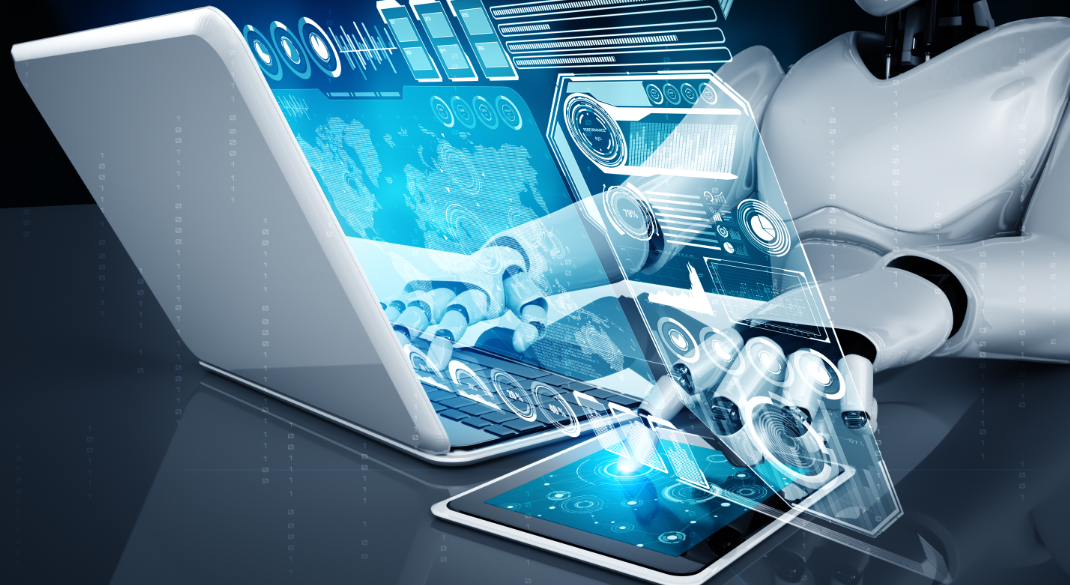Home >Technology peripherals >AI >The rise of human-like AI: Changing the job market and the workforce
The rise of human-like AI: Changing the job market and the workforce
- WBOYWBOYWBOYWBOYWBOYWBOYWBOYWBOYWBOYWBOYWBOYWBOYWBforward
- 2024-04-29 13:20:01671browse
The emergence of artificial intelligence is reshaping the global job market and labor force. As AI robots become increasingly sophisticated and capable of performing a wide range of tasks, from manual labor to complex cognitive abilities, they are expected to revolutionize industries and redefine traditional concepts of work. This article explores the rise of artificial intelligence and its transformative impact on the job market and workforce across industries.

Automate routine tasks:
Artificial intelligence excels at automating routine and repetitive tasks, allowing human workers to focus on more creative and strategic work . In areas such as manufacturing, logistics, and retail, humanoid robots are deployed to perform tasks such as assembly line operations, warehouse management, and customer service. While this automation increases efficiency and productivity, it also requires retraining and upskilling human workers to remain relevant in an ever-changing job market.
Improving Productivity and Efficiency:
-like artificial intelligence has the potential to significantly improve productivity and efficiency across industries. Humanoid robots can work tirelessly around the clock without fatigue or errors, streamlining processes, minimizing downtime and optimizing resource utilization. In areas such as healthcare, hospitality and agriculture, human-like AI can assist with patient care, hotel services, crop monitoring and harvesting, improving outcomes and reducing operational costs.
Augmenting Human Capabilities:
Artificial intelligence-like intelligence typically does not replace human workers, but rather complements and enhances their capabilities, leading to new opportunities for collaboration and innovation. In areas such as education, research and healthcare, humanoid robots can serve as assistants, mentors and caregivers, providing personalized support and assistance to individuals. By leveraging AI-driven tools and technologies, human workers can improve their skills, make data-driven decisions, and achieve superior results in their fields.
Job Displacement and Retraining Challenges:
While artificial intelligence brings many benefits, it also raises concerns about job losses and the need for workforce retraining. As automation displaces certain job roles, employees may face serious challenges in adapting to new skill requirements and transitioning into alternative careers. Governments, employers and educational institutions must work together to implement robust reskilling and lifelong learning programs to equip employees with the skills they need for the jobs of the future.
Ethical and Social Implications:
The widespread application of artificial intelligence raises ethical and social implications that must be actively addressed. Concerns about data privacy, algorithmic bias, job polarization, and the ethical treatment of AI-driven systems need to be carefully considered. It is critical to establish regulatory frameworks, ethical guidelines and accountability mechanisms to ensure the responsible development and deployment of AI technologies.
Summary
The rise of smart technologies is changing the job market and dynamics, providing opportunities to increase productivity, efficiency and innovation across industries. While automation and AI-driven technologies have the potential to revolutionize the way we work, they also present challenges related to job losses, motivation reskilling and ethical considerations. By embracing the opportunities presented by smart technology and thoughtfully addressing its associated challenges, we can harness its transformative potential to create a more inclusive, resilient and sustainable future of work.
The above is the detailed content of The rise of human-like AI: Changing the job market and the workforce. For more information, please follow other related articles on the PHP Chinese website!

